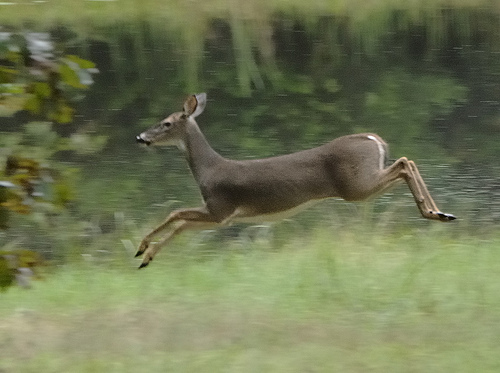FWP:
S. R. Faruqi's choices. For more on Ghalib's unpublished verses, see the discussion in {4,8x}.
'Lagging' or 'fatigue' results in reproach and shame, as in {35,4}. What has caused the speaker to incur this blame is his very 'lifetime' itself, which is furṣat-jū -- which seeks 'respite', 'opportunity', 'freedom', 'rest' (see the definition above). Thus there seems to be a division of interests between the speaker, who wants to avoid either 'lagging' or 'fatigue', and his own 'lifetime' with its very different set of priorities. We are left intrigued, waiting impatiently for the suitably (under mushairah performance conditions) delayed recitation of the second line.
The second line is astonishing in its power; it also has a famous English literary counterpart. In 'Sailing to Byzantium' Yeats addresses 'sages standing in God's holy fire', and urges them to
Consume my heart away; sick with desire
And fastened to a dying animal
It knows not what it is; and gather me
Into the artifice of eternity.
That 'fastened to a dying animal'-- how can it fail to echo in the imagination? In the second line of the present verse the speaker complains of being chained to a panicky, madly-fleeing deer-- or rather, literally, to the 'flight' and/or 'panic' (see the definition above) of a deer.
A deer is always instinctively alert, always looking and sniffing around, always seeking food but also always poised to flee from the possible approach of a predator. To be chained to the flight/panic of a deer means that the speaker is carried along in a deer's headlong flight from death, and afflicted with a deer's panicky hunger for life. This seems to be what the speaker deplores-- but why exactly does he deplore it?
One possibility is the intuitively obvious one: that the speaker wants to move more slowly, while the 'lifetime' is always madly dashing off in one direction or another, dragging him helplessly along. The 'lifetime' dashes around like a panicky deer, leaving the speaker, helplessly carried away, subject to 'fatigue'. No doubt he'd rather stop and smell the flowers, or think about the nature of life-- but he can't. The mad rush of his 'lifetime' denies him the smallest chance to do so-- or even to catch his breath. (It may seem paradoxical that the lifetime's mad rush toward 'leisure' would deprive the speaker of leisure, but furṣat has a wider range of possibilities than does its usual English translation.)
There's also, however, another possibility: that the speaker wants to move even faster than the panic-flight of a deer, or in a different direction. The reason he can't do so is that his human 'lifetime' has chained him to the natural universe, the natural struggle for survival-- and even one of the fastest examples of this process, the panic-flight of a deer, is too slow (or is misdirected) compared to the movement that the speaker has in mind. That's why he complains of 'lagging' in what must surely be a mystical journey or some other kind of transcendent pursuit. In most ghazal verses the little human lifetime passes like lightning (see {148,6} for an example), but in the present verse the lifetime seems almost to be crazily dilatory, as it dashes off in wrong directions, or desperately looks for excuses to take side excursions.
There's also an enjoyable wordplay between the 'openness' that's a tertiary meaning of vā-māñdagī , and the 'concealment' that's a tertiary meaning of ram .
For another intriguing use of ram-e āhū , see {172,5x}. The fact that Ghalib repeats a conspicuous rhyme-word phrase like this shows once again that unlike some later critics, he wasn't at all averse to the repetition of rhyme-words within a single ghazal.

Zamin:
The agents are fate, or the workers-out of destiny. The respite-seeking lifetime-- that is, the lifetime as it passes-- is the flight of a deer. But this very flight of a deer has become, for me, a shackle on the foot, and has caused me to lag behind. But from these meanings no point emerges. 'Respite' can also mean rest and favorable resources; if we take this latter meaning, then the point will be that the final era of the seeker of rest and comfort will end at the stage of lagging.
That is, the flight of the lifetime is no small thing; it goes bounding along like a deer. And I am such that the search for rest doesn't let me do anything except turn over when lying in bed (becoming fatigued). But the question is how the movement of the lifetime came to be a cause of lagging/fatigue, and what relationship is there between the 'claim' and the 'proof'. The words of the verse don't at all establish these points or meanings.
== Zamin, p. 340